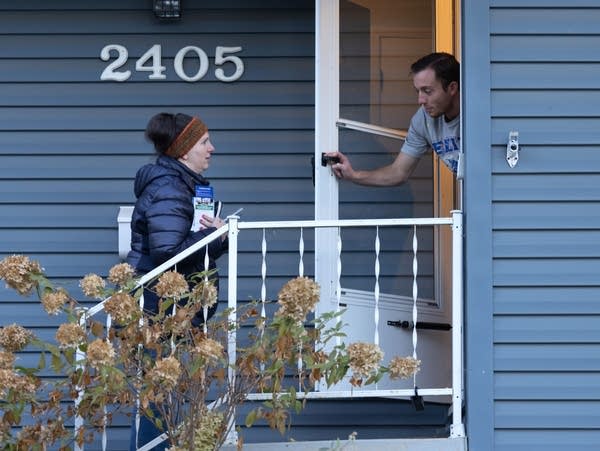A tale of two cities: How the DFL’s fortunes are shifting away from rural Minnesota

Minnesota Rep. Liz Boldon talks to a voter while door-knocking to promote her campaign for senate on Wednesday in a northwest Rochester neighborhood.
Ken Klotzbach for MPR News
Go Deeper.
Create an account or log in to save stories.
Like this?
Thanks for liking this story! We have added it to a list of your favorite stories.


